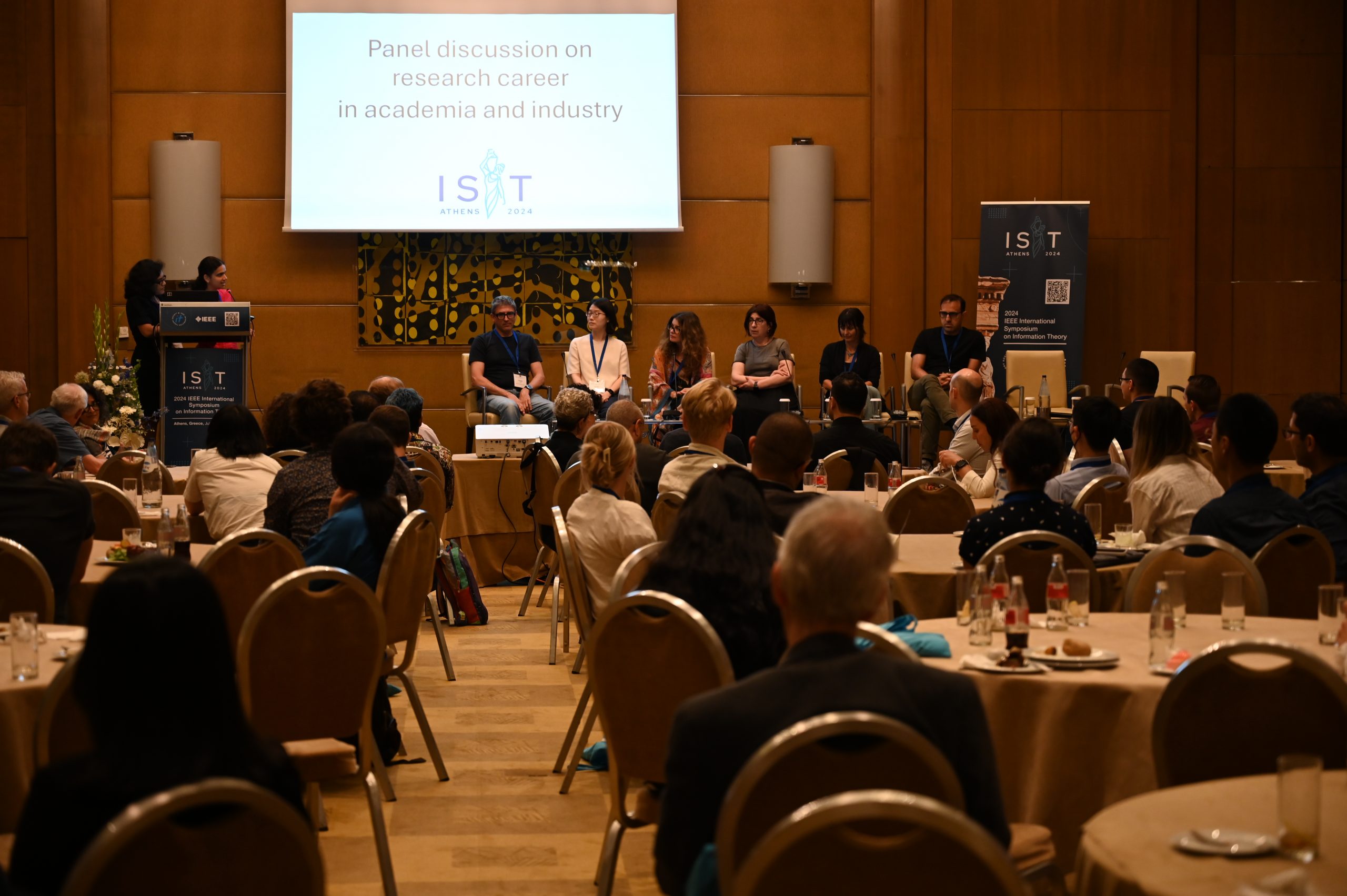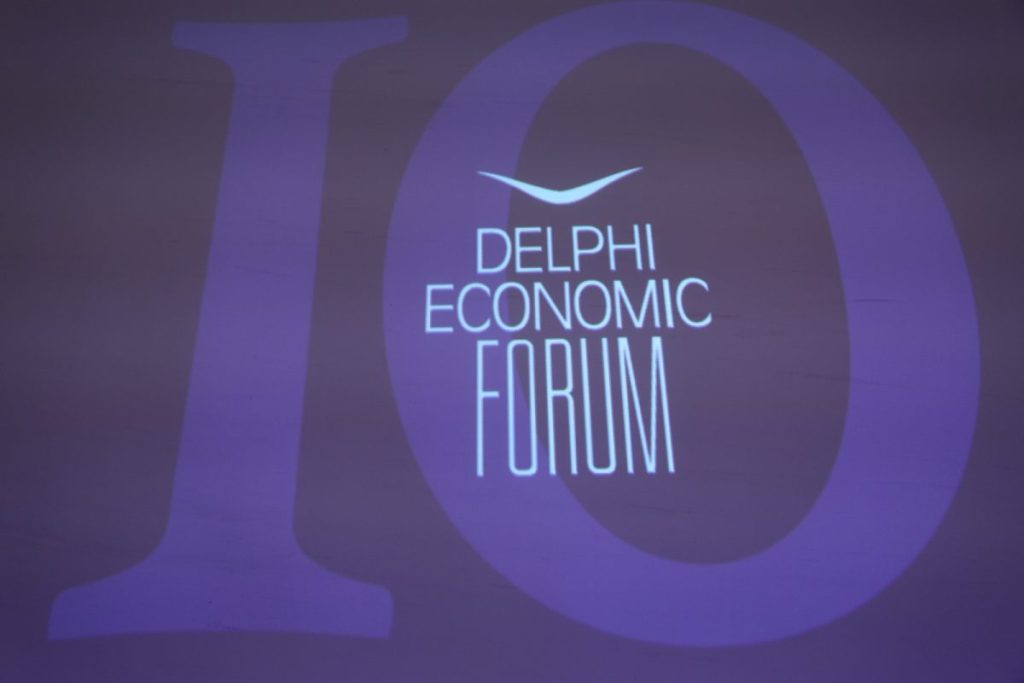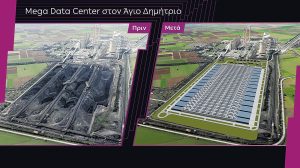The 2024 IEEE International Symposium on Information Theory (ISIT 2024) was held in Athens, Greece from July 7 to 12 featuring contributed papers, tutorial sessions, social, mentoring and outreach events, a simultaneous chess exhibition and chess talks, a data set competition (Bits&Bots), and for the first time this year, satellite workshops. This global scientific event also featured outstanding plenary speakers such as Andrew Barron and Venkatesan Guruswami.
General Chairs Urbashi Mitra, Professor of Electrical and Computer Engineering and Computer Science and Leandros Tassiulas, Professor of Electrical Engineering at Yale University, spoke to ToVima English, offering insights regarding the prestigious scientific event.
Is this the first time that an IEEE Information Theory Technology conference was held in Greece?
This is the first time that the flagship conference of the Information Theory Society, the IEEE International Symposium of Information Theory (ISIT), was held in Greece. The first ISIT was held in 1950 and while the conference has been in Europe 20 times before being in Athens this year.
What exactly is Information Theory?
Information Theory is the study of how we measure information, how we store it, how we process it, how we communicate it over networks. The founder of this theory is Claude Shannon who introduced the notion of the “bit” and is considered the father of the information age.
The information theory society recently produced a documentary to honor Claude Shannon and his contribution called The Bit Player which can be accessed for free on the Information Theory Society website and on YouTube. I highly recommend it!
How has the global scientific community responded in terms of participation in the conference?
The response has been very positive; we had close to a thousand participants which is a record participation for an ISIT. Attendance this year exceeds last year’s participation at the Taipei conference in Taiwan.
How will the symposium, held this year in Athens, benefit the Greek scientific community?
The Greek scientific community had the opportunity to participate in person in the main annual international event of Information Theory. We have expanded the scope of the conference to make deeper connections with the research communities of quantum computing, neuroscience, machine learning and the storage of information in DNA sequences. These are cutting-edge topics that we hope will attract the next generation of young researchers in this highly impactful field.
This year, the conference was facilitated by about 40 volunteers who are students from Greek universities and have the chance to audit tutorials and plenary and other talks from renowned researchers in the field and gain insight on key breakthroughs. Furthermore over 30% of our organizers were from the Greek diaspora or local to Greece.
Moreover, many of the scientists who attended the conference, expressed the good will to visit Greece again in the future, potentially establishing collaborations with local tertiary and other institutions.
How are the speakers for this year’s symposium selected, and what level of participation was there from Greek researchers in the selection process?
The majority of the speakers are selected through a process of scientific paper submission and review of the conference scientific program committee. In addition we have 4 invited plenary presentations from leading experts in the field. There has been good response from Greek researchers in this process.
How can applications of information technology be utilized to benefit both Greek and global societies?
Information Theory, the theme of ISIT focuses on the scientific foundations and methodologies of information generation, transmission, processing and storage. It is a field that establishes the “speed limits’’ of what is possible in information technology. It has been a cornerstone of the development of today’s information infrastructure and the internet.
Modern information theory is developing foundational tools for data analytics and machine learning that enable Artificial Intelligence services and applications. These technologies already have had a profound impact on key societal challenges and developments. Information theory has found application in economics, mathematics, statistics, wireless communications, the Internet, biology, neuroscience, medicine, as well as physics.
What parallel activities were planned for this year’s symposium, and how did they address contemporary challenges in technology and cyber security?
There were a number of interesting parallel activities. A chess event was organized this year where the transformational impact of Artificial Intelligence on chess competition was discussed while a chess competition between a Greek grand master and conference participants took place. We also had a machine learning competition that focused on the participation of students to solve a common problem called the ‘Bits and Bots competition’.
The Bits and Bots Competition showcased solutions on how to address the detection of malicious automated agents in real-time, especially amidst legitimate web traffic, presented as an urgent and critical challenge posing problems in the intersection of information theory, statistics, machine learning, and cyber security. The Bits and Bots competition presented at the symposium leverages a dataset of more than two million events collected over several months.





